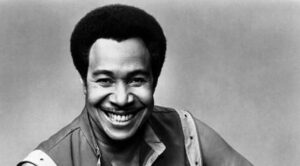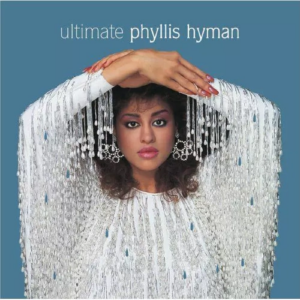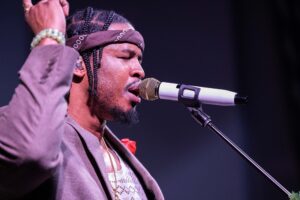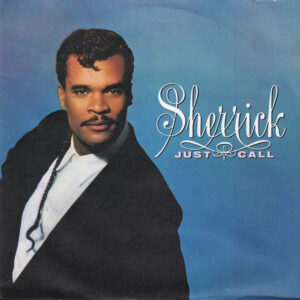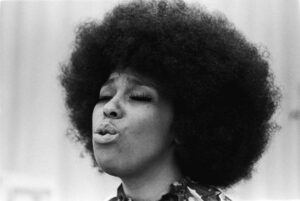This has to be one of the most hotly anticipated jazz projects of the New Year. Only, it’s not a jazz project, not in the purist sense of the word, not even in the fusion and smooth jazz derivatives of its father genre. No, James on his fifth solo album joins a movement spearheaded by artists like Nicholas Payton and carried forward by Blue Note label mate Robert Glasper and peers like Esperanza Spalding to abandon the notion of sticking to a single genre, given their varied musical interests and influences. Coined Black American Music or BAM by early adopters, James’ new, more muted album tries to find a mainstream audience for a talent whose more purist and experimental efforts, like Glasper’s and Spaulding’s, have been rewarded with critical acclaim and international touring, but little in the way of commercial sales success. However, as a vocalist with an undeniably jazz trained instrument, James’ challenge is different from his brass, string, and woodwind playing peers; and No Beginning, No End reveals the promise and limitations of this new strategy of becoming more of a household name through “musical freedom.”
The average fan of José James knows two albums backwards and forwards: The Dreamer and BlackMagic, two jazz classics largely produced by DJ Gilles Peterson, but also by popular producers like Flying Lotus and Moodyman. Collectively, these producers created powerful, edgy soundscapes for James’ dreamy baritone to sit in with a relaxation that is akin to easing into a hot milk bath after a long day. The results were nu-jazz for the modern age done with a Minnesota-born, New School trained voice that owed much to jazz men like Johnny Hartman, Arthur Prysock, Billy Eckstine, and, of course, Nat King Cole. For All We Know, a straight-ahead duet album on Verve with pianist Jef Neve proved less successful, but also showcased an instrument that proved James was more than a crooner, but an artist with versatility and range. But, for all the breathless ink spilled on music blogs and websites, including ours, on these three projects, three labels later James had yet to breakthrough. So, what to do, especially when all the talent and branding are there?
Well, Esperanza Spalding and Robert Glasper had previously experienced similar situations, until Spalding inexplicably won the Best New Artist of the Year at the Grammys and suddenly captured the world’s attention. Capitalizing on that attention, Spalding released a BAM project that was lighter on the jazz, heavier on the R&B and neo-soul, and altogether easier on the less complex listeners’ ear. Glasper followed suit with Black Radio. Arguably, so did singer Gregory Porter with his Grammy-nominated Be Good. All beat their previous sales success with this hybrid approach. Now, on his Blue Note debut, it’s James’ turn to test the formula.
The results aren’t milquetoast, but they are somewhat diluted when compared to the innovations that challenged listeners of BlackMagic. On the plus side, No Beginning, No End, boasts more traditionally structured songs with mass appeal. Throughout, the music is familiar in the neo-soul tradition of D’Angelo, Erykah Badu, and Jill Scott, with all its requisite Fender Rhodes and ‘70s basslines.
Recorded in London and NYC by top-of-the-line musicians, this BAM project’s instrumentalists straddle both the jazz and soul worlds. Most influential are Welsh bass guitarist and project co-producer Pino Palladino (who plays on every track but “Do You Feel”), drummer extraordinaire Chris Dave of the Robert Glasper Experiment, and Glasper himself on keys. If the album has a relationship to the neo-soul era, that may partially be due to engineer Russell Elevado of D’Angelo’s Voodoo and Erykah Badu’s Mama’s Gun fame, but mixing producer Brian Bender certainly helps by smoothing out all the live instrumentation with an impeccable sheen. Rounding out James’ all-stars are trombonist Alistar White, drummer Richard Spaven, Australian keyboardist Grant Windsor, and string arranger Jules Buckley of the Heritage Orchestra. James’ touring band, including bassist Solomon Dorsey, award-winning pianist Kris Bowers, drummer Nate Smith, and multi-horn player Takuya Kuroda all make themselves known, proving this is not a project lacking for live instrumentation. Guest vocalists Emily King and Hindi Zahra provide James with compatible co-stars on their separate duets, though James’ previous partner, Jordana de Lovely, is sorely missed.
Part of what made neo-soul, neo-soul was it’s judicious borrowing of ‘60s and ‘70s instrumentation elements. The project’s debut single, the James’ penned “Trouble,” makes the case for its own lineage with Sly Stone’s bass guitar chords coupled with the laidback sing-talk sensibilities of Boz Scaggs’ far more disco-tinged “Lowdown.” With a classic blues funk bassline, clean horns, and simple R&B melody, James’ “Trouble” has a strong kinship to the mid-tempo grooves of the mid-‘70s, with Palladino’s bass and Glasper’s key work making star turns on this traditional jam session. “It’s All Over Your Body,” co-written with Spaven and Windsor, and ably managed by Glasper and Dave, complements “Trouble” as that song’s funk-light twin, but echoes the provocative nature of catalog numbers like “Lay You Down” in its clever, implicitly sexual hook. “Make It Right” continues the neo-soul revival of the ‘90s in a way that reflects how Johnny Hartman might have sung D’Angelo; it’s a mash-up of incense and martinis.
The Leon Ware and Marvin Gaye playbook of “No Beginning, No End” closes out the neo-soul run, meandering until its winning hook and layered harmonies save it from drudgery. While James sings with himself, he doesn’t have nearly as many varied voices as Marvin, so the haunting dynamics that can come with this effect get lost. Collectively, this neo-soul quartet betrays the J Dilla influences of young, hip-hop crate diggers who never stopped loving their grandfathers’ vinyl collections of golden era jazz and soul.
A pair of pop numbers imprinted with Emily King’s songwriting fingers change up the neo-soul continuum, but only by the year. Originally released as a singer-songwriter acoustic duet with King on his EP, It’s All Over Your Body, “Come To My Door” now goes solo, and is made all the more moving for it. With its pale organ hums, plaintive guitar strums, and sweet male harmony, the sad tale transforms into a hopeful Latin serenade to a wanderer who’s moved on. Where it felt gimmicky as a duet, here it’s tender enough to slice with a butter knife. Not that King has been edged out as a vocalist. She shows up on a Fender Rhodes, brush drums, and guitar slow dance called “Heaven on the Ground” that has all the delicacy of an early Roberta Flack and Donny Hathaway tune. The aural showcase of doo-wop “oohs” lend themselves nicely to this golden romp in the grass and flowers.
The ‘70s slow jam continues on the organ and keys driven “Do You Feel.” A well-written Ray Charles-flavored melody, the cut would’ve vocally benefited from a little more color and, quite frankly, a little more church than James’ straight vocal take. It’s a beautiful ballad that begs to be covered by one willing to really go there. The musicians certainly do, giving their best Charles’ interpretation and giving heart to a song James’ can’t quite get undressed enough for in his classy cool.
That approach is better suited for the ponderous, introspective musings of “Vanguard,” a straight-ahead jazz number for those purists wondering if James has completely lost his way into the land of funk and soul. Written at the Village Vanguard by Glasper and James, the cut has a tonal brightness and familiar, pleasing melodic complexity for long time aficionados of artists like Lionel Hampton and Oliver Nelson. Still, it doesn’t kick off its traditionalist constraints until a duet transition between the drums and piano finds the song’s third gear on a staggering vamp out, as each of the other instruments drop out one bar at a time.
Fans of The Dreamer will cling to “Bird of Space,” the kind of modern jazz that James excels in: moody, spare, with a jazz melody line set in something much more modern and airy than its origins. It’s a song he can relax and play in with an ease and knowing not always present on the R&B here coveted. Accordingly, the song is supple and yearning, but also sharply sophisticated in its lyricism and metaphoric conceits. Here lonely and describing the after hours of life on the road, James knows how to be naked with this kind of elongated “smoking cigarettes at night” material in a way he can’t seem to when the inspiration is a Ray Charles or Donny Hathaway.
There are two truly exceptional moments on No Beginning, No End. A peaceful protest call done to a polyrhythmic percussion of handclaps, high hats, and marching drums laid against North African horns and an Eastern harmonic backdrops, “Sword + Gun (featuring Hindi Zahra)” is the project’s consciousness cut. A repetitive chant by the time we get to international star Hindi Zahra’s contribution to the project, “Sword + Gun” is the boldest of the project’s genre smashes, and in its complete unpredictability and originality the song is also one of the project’s most creatively compelling. In America, you’ll have never heard a cut quite like it.
More traditional, “Tomorrow” is something timeless: a spacious piano ballad in the Teena Marie “Yes, Indeed” or “ Casanova Brown” vein. Composed by Amp Fiddler, “Tomorrow” is the classic José James has needed. At last, an unforgettable original melody, with a Stevie Wonder “seasons” hook, an impenetrable structure and a beautifully executed string quartet courtesy of Jules Buckley of the Heritage Orchestra. It’s a song one imagines being performed at talent shows and artist showcases the world over. It’s also one of James’ most honest performances. “Tomorrow” cracks open James to the masses in a way that is rich and true.
Whatever its compromises, this traditionalist project masquerading as something new is José James’ real, best shot at long-awaited stardom, one that may finally and deservedly be within reach. Recommended.
By L. Michael Gipson

